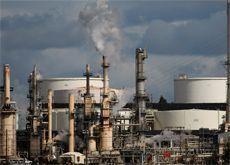All liquefied natural gas production units in top LNG exporter Qatar are now back online after an extensive maintenance program, which could pressure spot prices as supply increases.
Qatari LNG producer Rasgas said each of its seven production units, or trains, were back online on Wednesday after train six returned to service following a shutdown on June 20.
In an email to Reuters, a Rasgas spokeswoman said: “I can confirm that all RasGas trains are fully operational.”
An official from Qatar’s other LNG producer Qatargas said on Monday that its five trains were also up and running after train five came back online after maintenance.
This marks the end of a summer maintenance plan that has run since April and affected up to half the nation’s 61 million tonnes per year of export capacity.
The outages have been a key balancing factor in the global LNG market which was expected to be over supplied this year due to weak demand and increased Qatari production.
The last two returning trains each have an LNG production capacity of 7.8 million tonnes per year – double the size of conventional LNG trains. The extra supply is expected to pressure spot LNG prices which rose toward $8 per mmBtu last week because of tighter supply conditions caused in part by Qatari outages.
Asish Mohanty, senior LNG analyst, Wood Mackenzie, Houstan, said: “Even though demand in Japan, Korean and Taiwan has picked up, it hasn’t grown enough to absorb all this new supply.”
He added: “If these levels keep up, then we could see oversupply develop before winter demand kicks in, with possible downward pressure on prices.”
British gas futures, which are sensitive to Qatari LNG supply, moved lower today, with traders citing the potential for increased Qatari supply to British terminals as a factor.
While the trains are all back and running, it takes time for a train to ramp up to full production after an outage, which could delay increased supply by a few weeks. Rasgas’ newest train 7, which came back online after a supply outage in May, is not expected to run at full capacity until September, analysts have said.
Steve Johnson, president, Waterborne LNG analysts, Houston, said:”I don’t think all this gas will hit the market until the second half of August as trains take time to ramp up. When it does, these deliveries could push prices down.” (Reuters)








